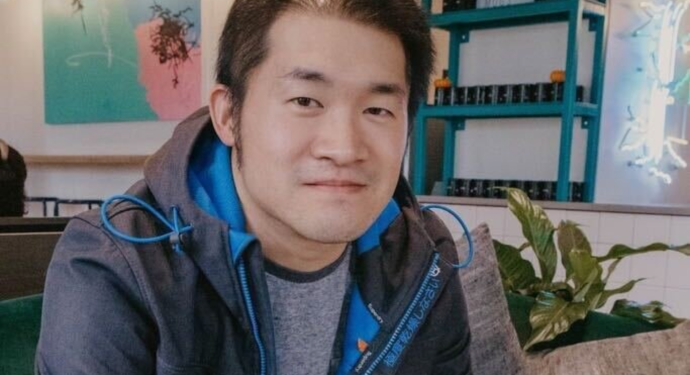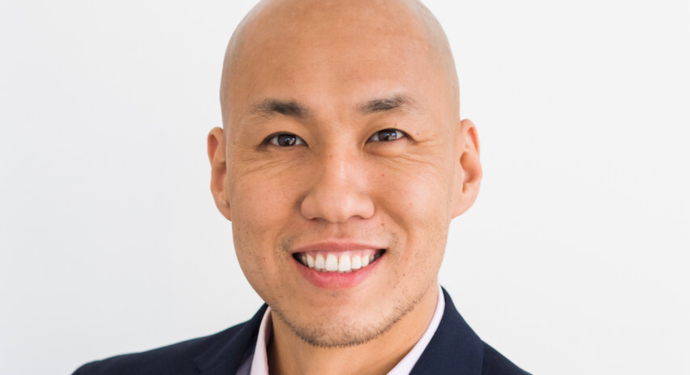1. What were you doing before you quit your job?
I worked as a Software Development Engineer II on the Amazon FireTV team. I joined Amazon after graduating from college and worked there for 4 years. I worked on the Alexa Media Player that plays music on most Alexa-enabled devices, including FireTV.
In parallel with working at Amazon, I spent my 4th year pursuing a Computer Science master’s degree at Cornell University. It was a busy year!
2. When did you realize you wanted to quit your job?
I’ll prefix this with the fact that I always wanted to start a company one day. I knew that it wasn’t a question of “if” but “when”. While working at Amazon, I wanted to learn everything I could so that one day I could start a business. I decided to try as many “Amazon experiences” as I could handle. I owned several projects within FireTV and Alexa over the years, helped to release several devices and later I even helped to facilitate a PR demo of a new FireTV device. During my second year, I won an Amazon ideas competition, and had an opportunity to present the proposed product to over 40 different audiences. Now, I consider this “pitch practice”, but back then I didn’t know I was “pitching” a product – I was mostly interested in their feedback. After all of these experiences, I felt well-equipped to start my own business.
The time for starting Spiral aligned very well for both me and my co-founder, Andrew DiLosa. I had just finished a few projects at Amazon and graduated from Cornell. The summer after my graduation was the perfect time to start a company, and that’s exactly what Andrew and I did.
3. What initial hesitations did you have about quitting your job and how did you overcome them?
I’ve dreamed of starting a company for so long that in order to stop me the hesitations would need to be quite substantial. My parents were very supportive – they knew I wanted to found a startup for a long time. They also knew I would regret not doing it more than the possibility of losing some money or not enjoying the startup rollercoaster journey.
One hesitation I had was the financial aspect of founding a company from scratch. I knew I would have to live without a paycheck for a few months or years. During my time at Amazon, I purposefully saved money that I could spend on my future company. Once I had gathered enough finances to cover a few years of living expenses, I knew it was time to go for it.
Another hesitation I had was around leaving my Amazon team (Alexa on FireTV) – I loved working there. I kept learning something new everyday and I was enjoying my time on FireTV. In the end, I realized that I would forever regret missing this opportunity if I did not take it, and that it was the right time for me to start something new.
4. Can you remember the day you put in your notice? What was it like, what was going through your mind, how did your manager take it?
My manager and I have gotten to know each other very well over the years and become very good friends. My manager supported my Amazon endeavors over the years like nobody else. He listened to my ideas, helped me to propose them, and supported me throughout multiple journeys as I tried to implement various projects within the company.
On the day I put in my notice, I flew into Seattle after my last day at Cornell and went into a 1:1 with my manager. He proposed a new growth opportunity to me, as he often did, and I told him that I really wanted to start a company and that now seemed like the right time for it. I think he completely understood why I wanted to become a founder based on the number of projects and ideas I proposed while at Amazon. He looked both happy and sad, and that’s exactly what he said – he was trying to keep me on the team, but at the same time, he was also very happy for me for starting a company, which I’d dreamed of for a long time. He knew me very well, so he understood that there was no way to keep me once I’d decided to change paths. I’m still very good friends with my manager, and I really hope we get to work together again one day!
5. What are you doing now?
I’m the co-founder and CEO of Spiral, a Seattle-based AI company that scans customer feedback and detects emerging issues before they escalate. I meet with customers, fundraise, lead product development, do business development, conduct hiring, and anything else we might need at Spiral.
6. Looking back on your experience of founding a company, what do you know that you wish you knew before? Are you happy with your decision?
I wish I knew more about customer discovery. As typical engineers, we started our startup journey with building a cool app. We created an AR app for teleporting others into the same room. Eventually, we learned that a cool app doesn’t necessarily make for a good business. We pivoted completely and worked backwards from the customer to define our new product. Here is how we learned customer discovery:
While working at Amazon, we were getting a lot of customer feedback in various forms and couldn’t always tell which bugs were more important than others. We became curious if other companies also collect customer feedback and apply it. After conducting over 70 customer interviews, we found that most companies collect tons of customer support conversations, but it’s often hard for them to find key customer issues. As a result, we started to take in companies’ customer support data like emails and chats, and detect emerging problems before they blow up.
And yes, I’m very happy with my decision – I’m glad I took the leap and founded Spiral! These were the two craziest, quickest, and the most challenging years of my life! Even if my startup journey would have ended for me today, I would say that the learning experience alone was totally worth it. I’m not sure I can think of any other way to gain this experience.
7. Any other advice you can share for others contemplating a similar path?
Here are a few pieces of advice that would have been helpful to know from the start:
Just go for it. When contemplating founding a company while working elsewhere, don’t worry about the current state of the idea and the product you have developed so far. It takes months or years to get to the right idea. Most founders I know iterated or pivoted a few times in the process so it almost doesn’t matter what you start with. It takes time to find the right problem and solution to base your company on and, in fact, that’s the goal of the first two years of your journey. All of this is hard enough to do without a full-time job and even harder when you have one, so my advice is if you’ve been wanting to start a company for a long time, have a plan in mind and enough resources available – just go for it.
Don’t be afraid to pivot. It’s very rare for a startup to be successful with the initial problem and solution they started with. Most founder stories I have heard always include a twist and a pivot in one way or another. If you’ve exhausted all the options for tackling your current problem and your customer discovery is in the “meh” state, think about other problems that came to mind over the past few months. A pivot symbolizes an ability to iterate, responding to a market change, or taking a new customer behavior into account, so it’s no surprise that many successful businesses have pivoted in the past.
Don’t write code (it’s a challenge!) before you hit at least 50 customer interviews. Customer discovery is everything. The most common mistake I see is implementing a product without any input from your future customers. We’ve made this mistake at Spiral – luckily, we learned customer discovery at Techstars, so we were able to get back on the right track pretty quickly. Also, customer discovery never ends – it’s a continuous loop of asking customers about their problems and verifying if your current solution is solving the same problem.





